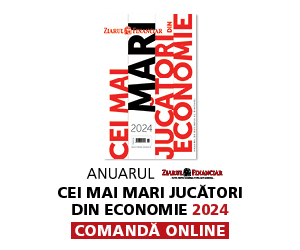Over the next couple of months, UDMR (Democratic Alliance of Hungarians in Romania) must choose the political party or coalition and the presidential candidate it will support in the autumn elections.
Whether from the inside or the outside of a post-electoral coalition, the party representing the Magyar community will have to support the same goals it has stated since its establishment: autonomous education system in Magyar, use of this language in administration and justice, local and cultural autonomy. However, UDMR decision makers must ask themselves if joining such a coalition would be beneficial for the party, depending on the offer they receive.
After four years of governance, the issue of the Magyar university has been buried under political negotiations, and the new draft law on the public local administration, focusing on decentralisation, has not been voted yet by the Chamber of Deputies.
Last but not least, the Alliance must see to its own internal problems. During the last meeting of the Board of Representatives, UDMR leader Marko Bela admitted that misunderstandings between the party's leadership and the platform of the Reform Block have become more serious. He said he was in favour of "renegotiating" the establishment agreement.
According to political analyst Bakk Miklos, the project submitted by the UDMR leader "shows that there's something amiss in the UDMR structure."
Moreover, he says that, lately, there has occurred a "detachment" of the UDMR leadership from the Hungarian civil society of Transilvania and from the community's intellectual elite. Bakk Miklos considers that "the Reform Block more radically supports objectives rather related to the community than to the current leadership that is busy with the themes of central ruling." The analyst refers to the reformists' proposal included in UDMR's programme presented at the Congress held in Miercurea Ciuc last year, regarding "a strategic partnership between Romanians and Hungarians of Transilvania," through collaboration at a local and regional level, between the elite of the two ethnic communities. In the perspective of Hungary's joining the European Union sooner than Romania, the frontier territory of the organisation will have "a regional dynamics that could benefit the inhabitants of Transilvania and Banat," Bakk considers. On the other hand, political analyst Daniel Barbu considers that, within UDMR, "the relatively numerous group of members currently participating in resources redistribution, by getting positions within the Government and public administration, wants to retain the same positions." Under such circumstances, one can never know whether those who oppose the leadership are "truly motivated by concern for the future of the community," or wish to benefit from similar advantages, he says.
With regard to possible pre-electoral agreements of UDMR, party is still in expectancy, but it could enter the social-liberal pole that would correspond to a right-wing identity assumed by the Hungarian faction, Bakk Miklos considers. "There are some politicians within the Union who, out of a pragmatic spirit, would even agree to collaborate with PDSR", he says, but this has never been concretely debated at the level of the faction. "Anyway, these issues will be decided upon after elections", says the Cluj analyst. In the opinion of Daniel Barbu, the best politics for the Hungarian community would be "supporting from the outside the coalition that will guarantee the fulfilment of its objectives," without any other direct involvement in the respective ruling.















































